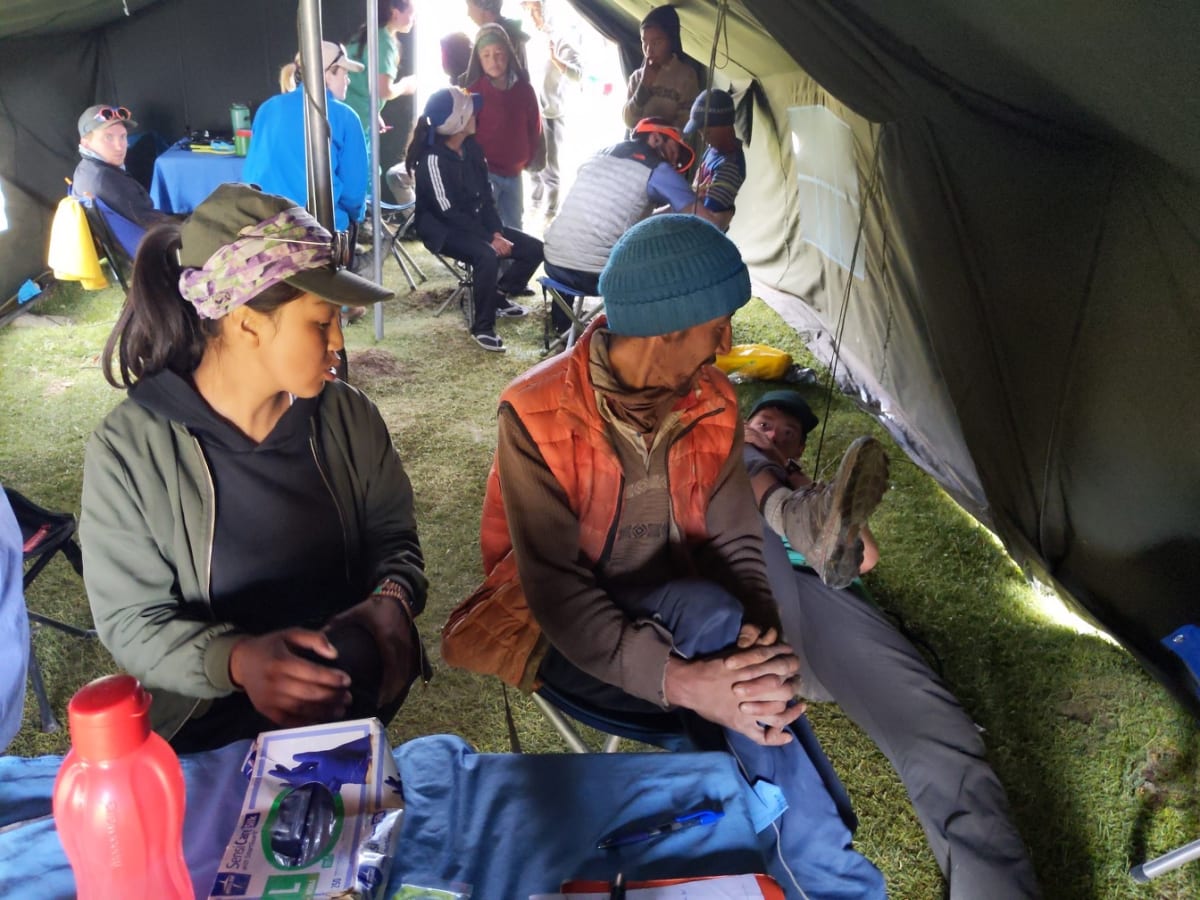Along with other physicians, medical students, APPs and allied health providers will spend a month trekking to different high villages in the mountains surrounding the city of Leh, India. These villages are only accessible about 5 months out of the year. During our time there, we will be providing medical care through clinics we set up in the various villages. Given the remoteness of these villages, the inhabitants rarely get any medical care or medications. We will be bringing all of our own medication and equipment, including portable Ultrasound to aid in diagnosis and treatment. The vast majority of the expedition will be off main roads and accessible only by foot. We will have the aid of a sherpa team as well as Yaks to help carry our medical gear; this speaks to the remoteness of these villages we plan on serving.
The population served will be largely Buddhist Monks in the towns and villages surrounding Leh. We will treat all comers to the clinics, and treat patients with both acute and chronic pathology. We chose to serve this population given their extreme location and the impediments they have to accessing care. Additionally, this is an established expedition and we're continuing to build a more permanent impact in the communities by returning year after year.
A number of impacts are expected from this voyage. First and foremost, we hope to impact the individual lives of our patients by diagnosing disease and implementing treatments to relieve suffering and improve quality of life. We also hope to educate our patients about healthy living, preventative care, and answer any health questions they may have. We hope to educate the caretakers within the village to improve the care they can provide when there are not any modern medical teams available. I believe this experience will help hone my history and physical exam given that we will have minimal modern diagnostic tools to which I have become accustomed. This experience will also help to educate me in diseases not common in the US. As people from all over the world routinely travel to the US, having first hand experience with uncommon conditions will help me provide better care to the international members of the US community. As this trip will be almost exclusively conducted in an austere environment, team work will be paramount to success. As an ED physician, being a good team member is very important for good patient care. I hope this trip allows me to hone my teamwork skills, and build resilience in a medical field that can be full of adversity and uncertainty.






Our group spent roughly 3 weeks traveling through the Kashmir region of India serving local villagers. The villages don't have road access, so the only way to get to them is by horseback or by foot. Bringing our equipment on horseback, we made our way over high passes to a series of Valleys and would set up clinics outside small villages. The people who came to our clinic were kind people. Using translators, we heard about their various ailments and ills. Their complaints often reflected the harshness of their lives. Eye problems from overexposure to sunlight without protection from sunglasses. Arthritis from a lifetime of working in the fields. Sequela from injuries that never fully healed due to lack of access to medical care. Despite this hardship, however, they always were cheerful and quick to smile and laugh. Even if we just provided some reassurance, they were always very grateful for our help. Some folks didn't really even have complaints, they just wanted to see their insides on our portable ultrasound. We happily obliged them, and used the opportunity to teach the medical students on our trip a thing or two about POCUS. One of the days, we went to a monastery and took care of all the children who live there. One of our group gave them a ball to play with, and the whole mass of them came up with a variation of cricket and played for seemed like hours. It's truly wonderful to see how despite our different upbringings and cultures, we are so truly much more alike than different.